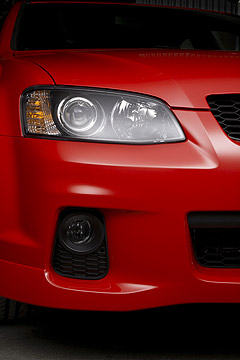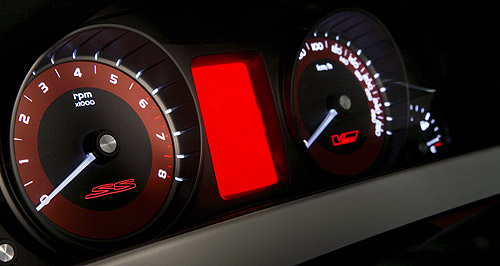Make / Model Search
News - General NewsMotor industry delivers CO2 warning to CanberraFederal case: A senate committee has heard the concerns of the Australian motor industry on a carbon tax. Senate committee hears concerns of car and component manufacturers over CO2 tax18 May 2011 THE Australian motor industry today warned a senate select committee that a carbon tax would reduce the competitiveness of the local manufacturers in the absence of a global agreement on carbon emissions. The message was delivered by the Federal Chamber of Automotive Industries (FCAI) CEO Andrew McKellar and Federation of Automotive Products Manufacturers (FAPM) CEO Richard Reilly, who both gave evidence to the Select Committee on Scrutiny of New Taxes sitting in Canberra. Mr McKellar and Mr Reilly presented figures and estimates from a jointly commissioned study into the potential effects of a carbon tax on the motor industry, prepared by PricewaterhouseCoopers Australia. As GoAuto reported yesterday, the report estimated that a carbon tax could add between $222 and $412 to the cost of each car if a carbon price was set at between $20 and $30 a tonne. It warned that the tax was likely to be between $30 million and $84 million, depending on factors including compensation, and threaten plans for growth.  After going before the multi-party committee chaired by Liberal senator Mathias Cormann, Mr Reilly told GoAuto today that additional taxes on the motor industry would make life difficult for component manufacturers competing with importers in countries without a carbon tax. After going before the multi-party committee chaired by Liberal senator Mathias Cormann, Mr Reilly told GoAuto today that additional taxes on the motor industry would make life difficult for component manufacturers competing with importers in countries without a carbon tax.“The issue is all about competitiveness, and if there is an additional impost on the automotive industry, whether that is the vehicle manufacturers or the component sector, that’s going to impact competitiveness,” he said. “The extra cost of manufacturing going into components will put additional pressure on the component sector, and so have an impact on the vehicle manufacturing sector.” Mr Reilly stopped short of saying such a tax might cost jobs, but he echoed the PricewaterhouseCoopers report by saying: “It will make our guys less competitive if there is no global agreement on carbon pricing at this stage, because the incentive will be there to source the cheaper product from overseas rather than a local manufacturer.” Mr Reilly said compensation for the industry could include incentives for more research and development by Australian component manufacturers. “All the major manufacturers are multi nationals, of course, competing for investment for R&D, so there could be some incentives there from the government regarding additional R&D investment on the component side,” he said. “With the abolition of the Green Car Innovation Fund, we need to look at other areas where the government can assist, if the component sector is to become more competitive.” Mr Reilly said Australian component-makers needed to be more competitive with companies producing similar products in countries without a carbon tax, including China and India. According to the PricewaterhouseCoopers report, the vehicle components industry generated revenue of $5.1 billion in 2010 and exports of $1.5 billion. The report said imports of automotive components had increased from 34.8 per cent in 2005-6 to 43.6 per cent in 2010-11, as domestic manufacturers faced increasing cost pressure. The US and Japan accounted for about 40 per cent of imports, although China was rapidly assuming a larger share.  Read more |
Click to shareGeneral News articlesResearch General News Motor industry news |










Facebook Twitter Instagram